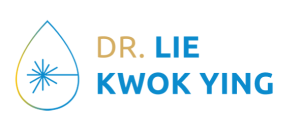An enlarged prostate, medically known as Benign Prostatic Hyperplasia (BPH), is a common condition that affects many men as they age. While not cancerous, BPH can cause bothersome urinary symptoms that interfere with daily life. Understanding its symptoms, how it’s diagnosed, and available treatment options is essential for managing the condition effectively.
Symptoms
As the prostate gland enlarges, it can press against the urethra, leading to a variety of urinary symptoms. Common signs of BPH include:
- Frequent urination, especially at night (nocturia)
- Difficulty starting urination
- Weak or interrupted urine stream
- Urgency to urinate
- Incomplete bladder emptying
- Dribbling at the end of urination
These symptoms can range from mild to severe and tend to worsen over time if left untreated.
Diagnosis
Diagnosing an enlarged prostate typically begins with a detailed medical history and physical examination. A digital rectal exam (DRE) allows the doctor to assess the size and condition of the prostate. Additional tests may include:
- Urinalysis to rule out infection
- Prostate-Specific Antigen (PSA) blood test to screen for prostate cancer
- Uroflowmetry to measure urine flow strength
- Post-void residual volume test to determine how much urine remains in the bladder
- Ultrasound or cystoscopy for further evaluation in complex cases
Accurate diagnosis is key to determining the most appropriate treatment for enlarged prostate.
Treatment Options
Treatment depends on the severity of symptoms and the impact on the patient’s quality of life. Mild cases may be managed with lifestyle changes such as reducing caffeine and alcohol intake and avoiding fluids before bedtime.
For moderate to severe symptoms, medical therapy is usually the first step. Alpha-blockers and 5-alpha-reductase inhibitors are commonly prescribed to relax prostate muscles or reduce prostate size.
If medications are ineffective or not well-tolerated, minimally invasive procedures like UroLift, Rezūm, or laser therapy may be considered. In more advanced cases, surgical options such as TURP (Transurethral Resection of the Prostate) may provide significant relief.
Conclusion
BPH is a manageable condition when diagnosed early and treated appropriately. If you’re experiencing urinary symptoms, consult a healthcare professional to explore the most suitable treatment for an enlarged prostate and improve your quality of life.
Looking for a trusted Urologist in Singapore with proven expertise and compassionate care? Visit Dr Lie Kwok Ying | Urologist In Singapore | BPH Specialist.
Clinic: Dr Lie Kwok Ying | Urologist In Singapore | BPH Specialist
Name: Dr Lie Kwok Ying
Address: 820 Thomson Rd, #02-01, Singapore 574623
Phone Number: 6553 5066
Schedule:
Monday-Friday: 08:30am – 5:00pm
Saturday: 08:30 am – 12:00 pm
Sunday / PH: CLOSED
Description: Urologist In Singapore With 20 Years Of Experience. Fellowship-trained Senior Consultant Urologist specializing in benign prostatic hyperplasia (BPH), kidney cancer, bladder cancer, and kidney stones. Pioneer in HoLEP (Holmium Laser Enucleation of the Prostate) in Singapore.
Website: https://lkyurology.com/
Email: alvernia.clinic@urology.com.sg





